Green Tea Side Effects: 16 Risks, Safe Dosage And Precautions
Get your facts right before you include this popular tea in your wellness routine.
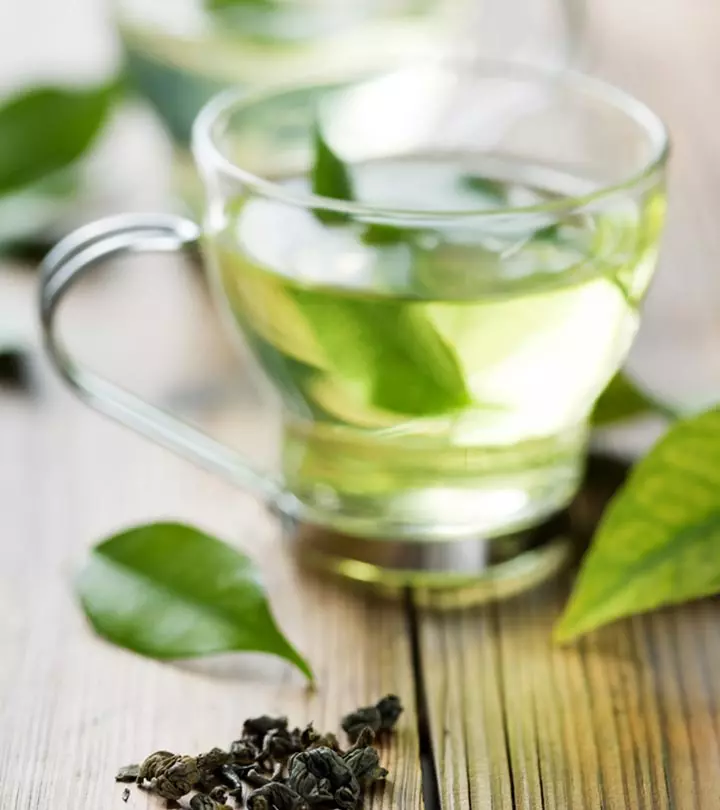
Image: Shutterstock
Green tea is known to offer many health benefits. It is also considered one of the healthiest drinks(1). But do you know there are some side effects of green tea too? This healthy tea is extracted from the Camellia sinensis plant. A compound in green tea, EGCG (epigallocatechin gallate), can combat obesity and cut down the risk of cancer and cardiovascular diseases (2). However, excessive consumption of green tea can be detrimental to your health.

Read on to learn the 16 side effects of green tea, the right dosage, and precautions you must take.
 Know The Flip Side: Green Tea
Know The Flip Side: Green TeaShort-Term Effects
Headache, dizziness, vomiting, anxiety, heartburn, stomach pain, frequent urination
Long-Term Effects
Anemia, seizures, hepatotoxicity, impaired thyroid function, and bone weakness. Also, overconsumption during pregnancy cause birth defects.
Drug Interactions
Green tea caffeine interacts with certain antibiotics, anticoagulants, antidepressants, anesthetics, and birth control pills.
When To See A Doctor
If you experience muscle twitches and cramps, abnormal heart rhythm, nausea and dizziness, increase in bone injuries and inflammation.
In This Article
Green Tea Side Effects
Although there are various green tea benefits, drinking too much of it can cause health problems. Here is a list of adverse effects you must be wary about.
1. EGCG In Green Tea Binds Iron, Causing Anemia And Iron Deficiency
Anemia affects 1.62 billion people worldwide (3). It is caused due to iron deficiency and low levels of hemoglobin in the blood (4), (5).
Research studies point out that drinking too much green tea daily may cause iron deficiency, leading to anemia and/or low RBC count.
Dr. Matam Vijay-Kumar, a Penn State assistant professor, explains that a particular green tea catechin, EGCG (epigallocatechin gallate), binds with iron. This reduces EGCG efficiency as a potent antioxidant and also blocks iron absorption (6), (7).
Dr. Matam also advises people with IBD (inflammatory bowel disease)not to consume green tea when taking iron supplements. This is because iron-bound green tea EGCG loses the capacity to inhibit myeloperoxidase (an inflammation-inducing enzyme). This may lead to inflammation and stomach pain, further aggravating IBD.
Bottom Line – Green tea EGCG may cause iron deficiency and anemia by blocking iron absorption.
2. Caffeine In Green Tea Interferes With Certain Medications

Caffeine is a CNS (Central Nervous System) stimulator (8). That is why a cup of green tea makes you feel rejuvenated and re-energized. The catch is, consuming large amounts of green tea while on certain medications may cause side effects.
Caffeine is broken down in the body and flushed out. But certain drugs like Cimetidine, antibiotics like Ciprofloxacin, enoxacin (Penetrex), trovafloxacin (Trovan), sparfloxacin (Zagam), norfloxacin (Chibroxin, Noroxin), grepafloxacin (Raxar), Fluconazole, anesthetic drugs like Midazolam, and birth control pills inhibit caffeine breakdown (9).
As a result, caffeine continues to be in the body, causing jitters, restlessness, increased heart rate, and, in some cases, arrhythmiai A condition where blood clots are formed due to rapid or irregular heartbeats, increasing the risk of heart failure. (10), (11).
Scientists found that green tea caffeine inhibited the metabolism of Clozapine, an antipsychotic drug, leading to clozapine toxicity (12). People on lithium also should avoid consuming green tea. This is because it may increase your lithium levels, which may lead to toxicity and unwanted side effects such as nausea, tremors, dizziness, and kidney issues (13), (14).
Research shows that vitamin K in green tea inhibits the effects of Warfarin, an anticoagulant (anti-blood clotting) drug (15).
Bottom Line – Green tea caffeine may interfere with certain antibiotics, antidepressants, anticoagulantsi Also known as blood thinners, they help prevent blood from clotting and help reduce existing ones. , anesthetic drugs, and birth control pills.
3. Green Tea During Pregnancy May Cause Birth Defects
Several studies show that drinking excess green tea during pregnancy may have a negative impact on the mother and the newborn. Consuming more than 300 mg of caffeine per day increases the risk of hypertensioni A medical condition in which the artery walls are consistently being pushed by an excessive amount of blood. during pregnancy (16).
Scientists have also found that caffeine and tannins in green tea can reduce the levels of folic acid. Folic acid, a water-soluble B-vitamin, prevents miscarriages and birth defects like spina bifida (17), (18). Though there is no overall risk associated with tea intake, the anti-folate effects of tea (green) need further study (19).
Moreover, drinking excess green tea may increase the risk of preterm birth. Research suggests that high levels of an amino acid called homocysteine during pregnancy can increase the risk of preterm birth. Normally, folate helps lower homocysteine levels. However, compounds in green tea may interfere with how the body processes folate, which might raise the risk of preterm birth. Additionally, green tea leaves may contain heavy metals and pesticides, which may cause oxidative stress. This stress may harm the body cells, including those involved in reproduction, potentially increasing the chances of preterm birth. (20).
However, EGCG was found to prevent maternal diabetes-induced neural tube defects (21). It is, therefore, best to talk to your doctor before consuming green tea during pregnancy.
Bottom Line – Excessive consumption of green tea during pregnancy may increase the risk of preterm birth, spina bifida, and maternal hypertension. Consult your doctor before consuming green tea during pregnancy.
4. Caffeine In Green Tea May Cause Hypokalemia And Seizures
Hypokalemia is characterized by low potassium levels in the blood. Potassium is important for muscle contraction and the functioning of the body’s proteins. Drinking too much green tea may lower potassium levels, leading to muscle weakness, muscle twitches, muscle cramps, and abnormal heart rhythms (22).
Two patients with hypokalemia (low potassium levels) were advised to reduce their green tea consumption. This change alone allowed their potassium levels to return to normal after a few days. However, taking green tea along with other medications was found to induce hypokalemia. Taking green tea alone was not found to cause this effect in a study published in the British Medical Journal (23).
Researchers also found that green tea’s potassium-lowering and calcium-lowering properties may have a pre-convulsive (muscle tremors and epilepsy) effect (24).
Other studies show that consuming more than 200 mg of green tea per day may increase the risk and frequencies of seizures (25). Though certain studies suggest that caffeine increases the risk of seizures, more research is required. However, caffeine was found to reduce the efficacy of drugs for epilepsy treatment in a study published in Epilepsy & Behavior (26).
Some other findings report that people with epilepsy who consumed caffeine in high quantities experienced an increase in seizure frequency (27).
Bottom Line – Consuming excessive amounts of green tea may cause hypokalemia and increase the risk and frequency of seizures.
5. Green Tea Extract May Be Toxic For The Liver
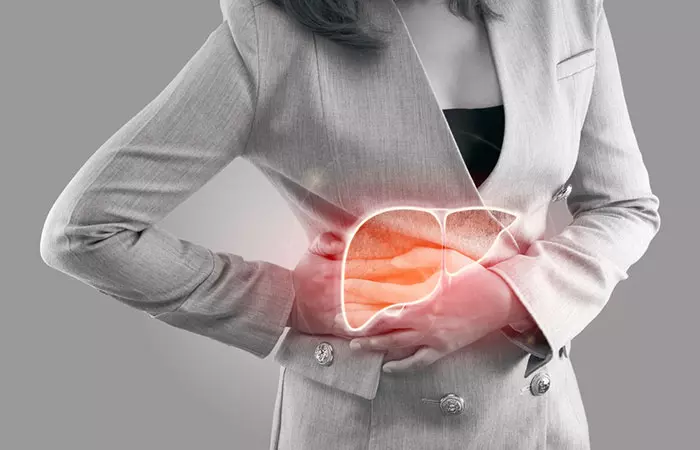
Many people consume green tea to lose weight and reap other green tea benefits. But studies show that consuming excessive green tea can backfire and cause liver damage.
Epigallocatechin gallate (EGCG) makes up 10% of green tea extract. Higher concentrations of EGCG may cause mitochondrial toxicity, possibly leading to hepatotoxicityi The condition of liver damage due to drugs, alcohol, food additives, or even medicinal plants. It can be an acute or chronic injury. (28).
A 37-year-old lady with no history of liver damage or alcohol use showed increased inflammation, necrosis (cell or tissue death due to lack of oxygen), and higher aminotransferase levels (a sign of liver damage) after consuming a weight loss pill whose major ingredient was a green tea extract (28).
Bottom Line – High concentrations of EGCG found in green tea pills and supplements may cause liver damage.
6. Caffeine Toxicity Causes Headache, Dizziness, And Vomiting

Many people consume green tea for weight loss. But green tea contains caffeine, and Science says, consuming more than 400 mg of caffeine per day may cause caffeine toxicity. Caffeine toxicity is typically characterized by headache, nausea, vomiting, chills, palpitations, and flushing (29).
Higher doses of caffeine may cause blood pressure to drop below normal levels (29). However, people who are sensitive to caffeine may show symptoms of caffeine intoxication at lower doses as well (29). There have also been reports of high blood pressure at normal doses of green tea caffeine (29).
Researchers at the Monmouth Medical Center, USA, caution against the use of OTC caffeine pills taken with other nervous system stimulants. These caffeine pills or supplements contain higher than normal doses of caffeine. Taking these may causeatrial fibrillationi An abnormal heart rate that leads to blood clots. It also increases the chances of heart risks. , and sometimes, even death (29), (30).
Note: Caffeine is used to treat migraines. Only a licensed physician has the authority to determine the dose and necessity of caffeine to treat migraines.
Bottom Line – Caffeine is toxic in higher doses and may cause headache, nausea, vomiting, low blood pressure, flushing, and atrial fibrillation.
7. Caffeine In Green Tea May Impair Thyroid Function
Green tea catechinsi They are organic substances and powerful antioxidants found in large quantities in tea, cocoa, and berries that prevent chronic illnesses. are known to reduce the risk of thyroid cancer. But excessive intake of green tea caffeine may impair thyroid function (31). In rat studies, daily caffeine intake of 120-150 mg/kg during pregnancy may cause the baby to lose weight (a case of maternal hyperthyroidismi A condition which occurs when a thyroid gland produces more hormones than needed, increasing the speed of the metabolic process. ) (32).
A study conducted at the National Cancer Center, Tokyo, Japan, showed that green tea consumption might increase the risk of thyroid cancer in premenopausal women. On the other hand, it may reduce the same risk in postmenopausal women (33).
Bottom Line – Green tea catechins in high doses may cause abnormal thyroid function.
8. Green Tea Caffeine May Cause Bone Weakness
The National Osteoporosis Foundation warns that excessive caffeine may prevent calcium absorption (34).
Both mice and human studies show that green tea extract (GTE) or higher green tea intake reduces bone accumulation rate, increases fracture risk, and reduces bone mineral density. It may also cause bone loss in the elderly (35), (36), (37), (38).
Note: There are several studies that show green tea flavonoidsi Compounds found in plants that are generally consumed by humans in the form of fruits and vegetables. They have anti-inflammatory benefits. are highly beneficial for the bones. However, in this context, higher doses of green tea may harm bone growth and density.
Bottom Line – Excessive consumption of green tea or taking green tea extract pills or supplements may prevent bone growth and increase the risk of fractures.
9. Green Tea Caffeine May Cause Anxiety And Insomnia

While lower doses of green tea may help induce sleep and lower stress, higher doses can lead to insomnia and anxiety (39).
The caffeine present in green tea is a nervous system stimulant. Consuming more than 300 mg of caffeine per day may reduce sleep quality and cause insomnia, irritability, depression, anger, and anxiety (40), (41).
Bottom Line – Having a lot of green tea per day may increase anxiety and irritation. It may also cause insomnia and reduce the quality of sleep.
10. Green Tea May Prevent Blood Clotting
Warfarin is a common anti-blood-clotting drug administered to treat blood clots and reduce the risk of heart attack and stroke. Scientists have found that green tea caffeine blocks the action of Warfarin.
Research shows that caffeine inhibits the metabolism of Warfarin. So, people undergoing Warfarin treatment must avoid caffeine-rich products like green tea extracts or excessive amounts of green tea (42).
The vitamin K in green tea also inhibits Warfarin (15).
Bottom Line – Avoid consuming green tea if you are on Warfarin or any other anticoagulant drug treatment.
11. Too Much Of Green Tea May Cause Heartburn
Heartburn is a typical symptom of GERD (gastroesophageal disease). GERD is commonly known as acidity and is caused due to smoking, obesity, bad food habits, and excessive green tea consumption (43).
Japanese scientists found that an inactive or sedentary lifestyle, along with an excessive intake of green tea regularly, might increase the risk of GERD (44). Another study conducted on the Asian populations found that a component of tea, theophylline, might cause acid reflux (45).
Drinking excessive amounts of green tea is linked to AEE (Asymptomatic erosive esophagitis), a subclass of acid reflux. The incidence of AEE is 3.8 times higher in people who drink tea and also consume alcohol (46).
Bottom Line – A sedentary lifestyle and bad food habits, coupled with excessive green tea consumption, may cause heartburn and acidity.
 Quick Tip
Quick Tip12. Green Tea Caffeine May Cause Stomach Upset And Pain
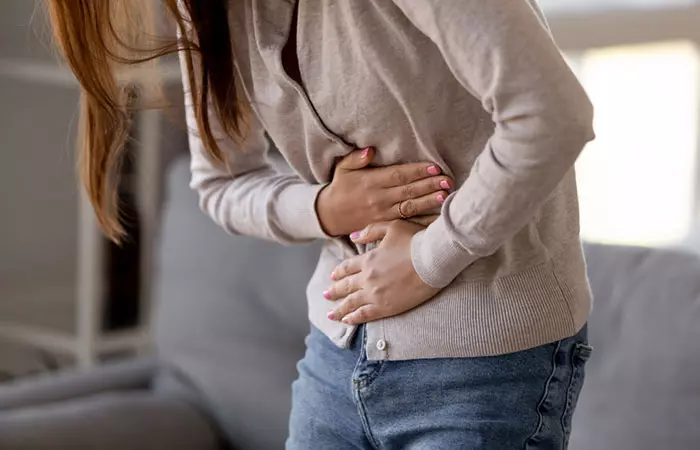
The International Foundation for Gastrointestinal Disorders reiterates that caffeine possesses laxative properties. Consuming more than 3 cups of green tea per day may cause diarrhea (48).
In fact, green tea extract containing high doses of caffeine may cause abdominal pain, jaundice, and dark urine (49).
Bottom Line – Consuming more than 3 cups of green tea daily may cause diarrhea, abdominal pain, and dark urine.
13. Green Tea Caffeine May Cause Frequent Urination
No, it’s not the extra water that you consume. It’s the caffeine in green tea.
Too much green tea caffeine (more than 4.5 mg per kg) per day causes early urgency of urination and even increases its frequency (50). The diuretic effect of caffeine affects bladder function by increasing neuronal activation (51).
Note: Lower doses of green tea may help reduce urinary diseases.
Bottom Line – Excessive doses of green tea caffeine may increase urination frequency.
14. Green Tea May Cause Infertility In Men
Green tea polyphenols have therapeutic properties. But, in higher doses, these may cause infertility in men.
Scientists found that 10 mg/ml of green tea reduced the reproductive output in Drosophila melanogaster (the common fruit fly) (52).
In a study, male albino rats were administered green tea leaf extract for 26 days. After the 26th day, sperm production, sperm motility, and testosterone levels in the rats were reduced (53).
Excessive caffeine may damage sperm DNA and negatively affect the male reproductive system (54).
Bottom Line – Drinking green tea excessively may damage the male reproductive system, leading to infertility.
15. Drinking Green Tea May Stain Teeth
Drinking green tea after a teeth bleaching treatment causes teeth staining (55). Though there is no research directly linking green tea intake to stained teeth, anecdotal evidence suggests so.
Bottom Line – Green tea stains teeth. After a bleaching treatment, it is best to avoid green tea for a few days.
16. Side Effects Of Green Tea On Hair
Green tea, if not used cautiously, may cause some serious side effects on your hair. Anecdotal evidence suggests that excessive consumption of green tea may lead to increased hair loss or worsens existing hair loss conditions in caffeine-sensitive individuals. The caffeine in green tea may also potentially interfere with hair growth cycles, especially if you use it topically. Research published in the Journal of Dermatology and Dermatologic Surgery suggests that while caffeine can help hair grow, using more than 0.01% concentration of it can actually slow down hair growth. This happens because excessive caffeine creates a state that disrupts normal hair growth (56). Additionally, anecdotal evidence suggests overuse of concentrated green tea extracts, applied topically to the scalp without proper dilution, may result in dryness, roughness, and potential damage to hair follicles. If you notice any of these adverse effects on your hair, try adjusting your green tea consumption or consult a healthcare professional for a proper diagnosis.
 Quick Tip
Quick TipThese are the 16 green tea side effects backed by science. So, if green tea is dangerous in higher doses, what’s the ideal dose? Find out in the next section.
Key Takeaways
- Green tea’s high caffeine level causes sleeplessness, jitters, and restlessness.
- Some people may get anemia after drinking green tea.
- Green tea drinkers may experience issues with their livers.
- Supplemental green tea might result in headaches, nausea, and digestive issues.
- Green tea frequently has interactions with drugs, such as anticoagulants, which raise the risk of bleeding.
How Much Green Tea Should You Drink Per Day?
It is best to limit your green tea consumption to 2-3 cups per day. Also, do not exceed the 200 – 300 mg/ml caffeine intake. You may consume decaffeinated green tea but stick to the standard dosage of 2-3 cups of green tea per day.
Studies suggest that 338 mg of EGCG per day could be safe for most adults (58).
Tip: To know how much green tea caffeine or EGCG you are consuming per cup, check the nutrition label.
Decaffeinated green tea is a milder option for individuals sensitive to caffeine. However, caffeine-infused green tea is usually preferred for its energizing properties. Both have their own potential health benefits, so it is important to make a decision based on personal tolerance levels and medical requirements.
Some people should avoid green tea. The following section will tell you who.
Who Should Not Drink Green Tea?
Avoid drinking green tea if (59):
- you are pregnant.
- you are on Warfarin treatment (or are taking any other medication).
- you are experiencing abdominal issues.
- you have compromised bladder control/high risk of bladder cancer
- you are planning to sleep within an hour.
Note:
Talk to your doctor to know if you should stop consuming green tea altogether or if you can consume it in low doses.
Is it okay to drink black tea instead of green tea? Find the answer in the next section.
Green Tea Vs. Black Tea
Green tea and black tea are from the same plant, Camellia sinensis. But green tea is less processed than black tea. This makes all the difference:
- Green tea has more antioxidants than black tea.
- Black tea contains more caffeine.
Both teas have health benefits. But if you have caffeine sensitivity, it is best to consume green tea or matcha tea in limited amounts (and totally avoid black tea).
In case you are not allowed to drink even matcha tea, we have a list of green tea substitutes.
Green Tea Substitutes
- Lemon water
- Ginger and cinnamon tea
- Chamomile tea
- Jasmine tea
- Spearmint tea
- Tulsi tea
Infographic: 6 Negative Effects Of Overconsumption Of Green Tea
Green tea is quite popular for its health benefits. It consists of epigallocatechin gallate (EGCG) that fights obesity and reduces the risk of heart disease and cancer. However, if consumed in excess, green tea could also have negative effects. We have listed the most important side effects of green tea in the infographic below. Take a look.
Some thing wrong with infographic shortcode. please verify shortcode syntax
Green tea is popularised for the array of health benefits it offers. But one must also be aware of the potential side effects of green tea or allergic reactions. These include iron deficiency, drug interactions, an increased risk of congenital disabilitiesi Disorders or disabilities that exist in a baby before birth. They may result from environmental factors or be inherited. seizures, headache, dizziness, vomiting, bone weakness, anxiety, heartburn, and frequent urination. Hence, limiting green tea intake to 2-3 cups per day is advised to minimize the risks. In addition, if you are experiencing any abdominal issues, are pregnant, or are at risk of bladder cancer, green tea consumption may be unsafe. Caution is advised.
Frequently Asked Questions
Does green tea have any side effects for skin or hair?
There is no research stating that green tea may adversely affect skin or hair. However, if you experience any such side effects, please stop use and consult your doctor.
What is the correct time to drink green tea?
While you can enjoy green tea any time of the day, it is recommended to have it early morning or in the afternoon to boost your digestive system and concentration and make the most of your workout.
Can green tea cause allergies?
Yes, though rare, green tea can cause life-threatening allergic reactions such as anaphylaxis. It occurs suddenly and might lead to shortness of breath, vomiting, and shock (60). This condition needs immediate medical intervention.
Can I drink green tea at night?
Green tea contains caffeine which can cause difficulty in falling asleep. However, it also helps to reduce stress levels and improve mood, so it solely depends on the individual’s personal preferences.
Is there a difference between loose leaf green tea and tea bags?
The loose leaf green tea is made of whole leaves, and it needs to be measured and steeped in a tea diffuser before being consumed. In contrast, tea bags are usually made from tea dust and are easier to use, and do not require tea measurement or steeping time.
Illustration: Side Effects Of Excess Green Tea Intake
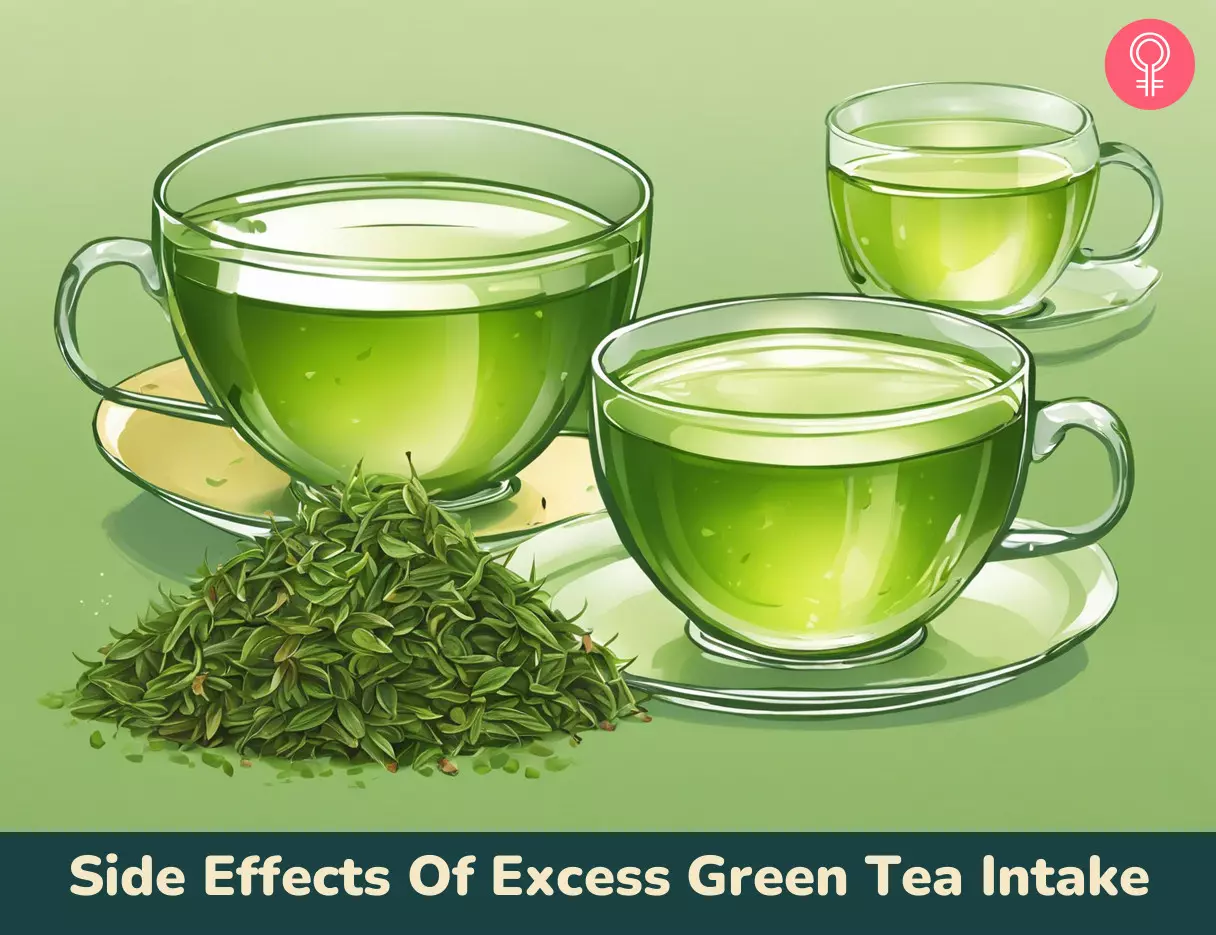
Image: Stable Diffusion/StyleCraze Design Team
Uncover the surprising side effects of drinking green tea that you never knew about! Delve into the potential downsides of this popular beverage, shedding light on its lesser-known impact on your health. Click on the video to get started!
References
Articles on StyleCraze are backed by verified information from peer-reviewed and academic research papers, reputed organizations, research institutions, and medical associations to ensure accuracy and relevance. Read our editorial policy to learn more.
- Health-promoting effects of green tea Proceedings of the Japan Academy US National Library of Medicine National Institutes of Health.
https://www.ncbi.nlm.nih.gov/pmc/articles/PMC3365247/ - Beneficial Effects of Green Tea Catechins on Neurodegenerative Diseases Molecules US National Library of Medicine National Institutes of Health.
https://www.ncbi.nlm.nih.gov/pmc/articles/PMC6099654/ - Worldwide prevalence of anaemia WHO Vitamin and Mineral Nutrition Information System 1993-2005
https://pubmed.ncbi.nlm.nih.gov/18498676/#:~:text=The%20estimated%20global%20anaemia%20prevalenceCI%201.50%2C%201.74%20billion). - Diagnosis and management of iron deficiency anemia in the 21st century Therapeutic Advances in Gastroenterolgy US National Library of Medicine National Institutes of Health.
https://www.ncbi.nlm.nih.gov/pmc/articles/PMC3105608/ - Anemia Iron Deficiency National Center for Biotechnology Information.
https://www.ncbi.nlm.nih.gov/books/NBK448065/ - Epigallocatechin-3-Gallate Inhibition of Myeloperoxidase and Its Counter-Regulation by Dietary Iron and Lipocalin 2 in Murine Model of Gut Inflammation The American Journal of Pathology.
https://ajp.amjpathol.org/article/S0002-9440(16)00009-2/fulltext - Iron deficiency anemia due to excessive green tea drinking Clinical Case Reports US National Library of Medicine National Institutes of Health.
https://www.ncbi.nlm.nih.gov/pmc/articles/PMC5093162/ - 2 Pharmacology of Caffeine US National Library of Medicine National Institutes of Health.
https://www.ncbi.nlm.nih.gov/books/NBK223808/ - Ciprofloxacin-caffeine: a drug interaction established using in vivo and in vitro investigations The American Journal of Medicine US National Library of Medicine National Institutes of Health.
https://pubmed.ncbi.nlm.nih.gov/2589393/ - Clinically significant pharmacokinetic interactions between dietary caffeine and medications Clinical Pharmacokinetics US National Library of Medicine National Institutes of Health.
https://pubmed.ncbi.nlm.nih.gov/10976659/ - The high concentration of epigallocatechin-3-gallate increased the incidences of arrhythmia and diastolic dysfunction via β2-adrenoceptor Journal of Food Science US National Library of Medicine National Institutes of Health.
https://pubmed.ncbi.nlm.nih.gov/25676191/ - Effect of caffeine on clozapine pharmacokinetics in healthy volunteers British Journal of Clinical Pharmacology US National Library of Medicine National Institutes of Health.
https://www.ncbi.nlm.nih.gov/pmc/articles/PMC2014893/ - Lithium Content and Its Nutritional Beneficence Dietary Intake and Impact on Human Health in Edibles from the Romanian Market US National Library of Medicine National Institutes of Health.
https://pmc.ncbi.nlm.nih.gov/articles/PMC10888284/ - Lithium Toxicity US National Library of Medicine National Institutes of Health.
https://www.ncbi.nlm.nih.gov/books/NBK499992/ - Probable antagonism of warfarin by green tea The Annals of Pharmacotherapy US National Library of Medicine National Institutes of Health.
https://pubmed.ncbi.nlm.nih.gov/10332534/ - Antenatal coffee and tea consumption and the effect on the birth outcome and hypertensive pregnancy disorders PLoS One US National Library of Medicine National Institutes of Health.
https://www.ncbi.nlm.nih.gov/pmc/articles/PMC5433714/ - Influence of Green and Black Tea on Folic Acid Pharmacokinetics in Healthy Volunteers: Potential Risk of Diminished Folic Acid Bioavailability Biopharmaceutics & Drug Disposition Wiley Online Library.
https://onlinelibrary.wiley.com/doi/abs/10.1002/bdd.617 - Association Between Serum Folate Levels and Caffeinated Beverage Consumption in Pregnant Women in Chiba: The Japan Environment and Children’s Study Journal of Epidemiology US National Library of Medicine National Institutes of Health.
https://www.ncbi.nlm.nih.gov/pmc/articles/PMC6143377/ - Maternal Tea Consumption during Early Pregnancy and the Risk of Spina Bifida Birth Defects Research US National Library of Medicine National Institutes of Health.
https://www.ncbi.nlm.nih.gov/pmc/articles/PMC4557736/ - Maternal tea consumption and the risk of preterm delivery in urban China: a birth cohort study BMC Public Health US National Library of Medicine National Institutes of Health.
https://www.ncbi.nlm.nih.gov/pmc/articles/PMC4886392/ - The green tea polyphenol EGCG alleviates maternal diabetes–induced neural tube defects by inhibiting DNA hypermethylation American Journal of Obstetrics and Gynecology US National Library of Medicine National Institutes of Health.
https://www.ncbi.nlm.nih.gov/pmc/articles/PMC5270539/ - Hypokalaemia and drinking green tea: a literature review and report of 2 cases BMJ Case Reports US National Library of Medicine National Institutes of Health.
https://www.ncbi.nlm.nih.gov/pmc/articles/PMC5483543/ - A case of hypokalemic myopathy induced by excessive drinking of a beverage containing green tea extract Clinical Neurology US National Library of Medicine National Institutes of Health.
https://pubmed.ncbi.nlm.nih.gov/23524606/ - Proconvulsive effect of tea (Camellia sinensis) in mice Phytotherapy Research US National Library of Medicine National Institutes of Health.
https://pubmed.ncbi.nlm.nih.gov/10441775/ - Caffeinated beverages and decreased seizure control European Journal of Epilepsy.
https://www.seizure-journal.com/article/S1059-1311(03)00048-7/fulltext - Caffeine and seizures: A systematic review and quantitative analysis Epilepsy & Behavior US National Library of Medicine National Institutes of Health.
https://pubmed.ncbi.nlm.nih.gov/29414557/ - Caffeine and the anticonvulsant potency of antiepileptic drugs: experimental and clinical data Pharmacological Reports US National Library of Medicine National Institutes of Health.
https://pubmed.ncbi.nlm.nih.gov/21441607/ - GREEN TEA (CAMELLIA SINENSIS) National Institutes of Health.
https://www.ncbi.nlm.nih.gov/books/n/livertox - The clinical toxicology of caffeine: A review and case study Toxicology Reports US National Library of Medicine National Institutes of Health.
https://www.ncbi.nlm.nih.gov/pmc/articles/PMC6247400/ - Atrial Fibrillation Due to Over The Counter Stimulant Drugs in A Young Adult Journal of Clinical and Diagnostic Research US National Library of Medicine National Institutes of Health.
https://www.ncbi.nlm.nih.gov/pmc/articles/PMC4576582/ - Various Possible Toxicants Involved in Thyroid Dysfunction Journal of Clinical and Diagnostic Research US National Library of Medicine National Institutes of Health.
https://www.ncbi.nlm.nih.gov/pmc/articles/PMC4740614/ - Gestational caffeine exposure acts as a fetal thyroid-cytokine disruptor by activating caspase-3/BAX/Bcl-2/Cox2/NF-κB at ED 20 Toxicology Research US National Library of Medicine National Institutes of Health.
https://pubs.rsc.org/en/content/articlelanding/2019/tx/c8tx00227d#!divAbstract - Green tea and coffee consumption and its association with thyroid cancer risk: a population-based cohort study in Japan Cancer Causes & Control US National Library of Medicine National Institutes of Health.
https://pubmed.ncbi.nlm.nih.gov/21562752/ - Food and Your Bones — Osteoporosis Nutrition Guidelines National Osteoporosis Foundation.
https://www.bonehealthandosteoporosis.org/patients/treatment/nutrition/ - Consumption of Green Tea Extract Results in Osteopenia in Growing Male Mice The Journal of Nutrition US National Library of Medicine National Institutes of Health.
https://www.ncbi.nlm.nih.gov/pmc/articles/PMC2744612/ - Bone mineral density polyphenols and caffeine: a reassessment Cambridge University Press.
https://www.cambridge.org/core/journals/nutrition-research-reviews/article/bone-mineral-density-polyphenols-and-caffeine-a-reassessment/4E81F4BA574543B085BFCAA49691AAD6 - Is caffeine consumption a risk factor for osteoporosis? Journal of Bone and Mineral Research US National Library of Medicine National Institutes of Health.
https://pubmed.ncbi.nlm.nih.gov/1609631/ - Caffeine intake increases the rate of bone loss in elderly women and interacts with vitamin D receptor genotypes The American Journal of Clinical Nutrition US National Library of Medicine National Institutes of Health.
https://pubmed.ncbi.nlm.nih.gov/11684540/ - Acute effects of tea constituents L-theanine caffeine and epigallocatechin gallate on cognitive function and mood: a systematic review and meta-analysis Nutrition Reviews US National Library of Medicine National Institutes of Health.
https://pubmed.ncbi.nlm.nih.gov/24946991/ - A systematic review of the potential adverse effects of caffeine consumption in healthy adults pregnant women adolescents and children Food and Chemical Toxicology ScienceDirect.
https://www.sciencedirect.com/science/article/pii/S0278691517301709 - Caffeine Consumption and Sleep Quality in Australian Adults Nutrients US National Library of Medicine National Institutes of Health.
https://www.ncbi.nlm.nih.gov/pmc/articles/PMC4997392/ - Effect of caffeine on the anti-clotting activity of warfarin in healthy male albino rabbits Pakistan Journal of Pharmaceutical Sciences US National Library of Medicine National Institutes of Health.
https://pubmed.ncbi.nlm.nih.gov/29625932/ - Gastroesophageal Reflux Disease US National Library of Medicine National Institutes of Health.
https://www.ncbi.nlm.nih.gov/books/NBK441938/ - Lifestyle Change Influences on GERD in Japan: A Study of Participants in a Health Examination Program Digestive Diseases and Sciences US National Library of Medicine National Institutes of Health.
https://www.ncbi.nlm.nih.gov/pmc/articles/PMC3179841/ - Association between tea consumption and gastroesophageal reflux disease Medicine US National Library of Medicine National Institutes of Health.
https://www.ncbi.nlm.nih.gov/pmc/articles/PMC6358326/ - Alcohol and tea consumption are associated with asymptomatic erosive esophagitis in Taiwanese men PloS One US National Library of Medicine National Institutes of Health.
https://www.ncbi.nlm.nih.gov/pmc/articles/PMC5338804/ - Diet and Nutrition: Temperance in Green Tea
https://pmc.ncbi.nlm.nih.gov/articles/PMC1964900/ - Common Causes of Chronic Diarrhea
https://iffgd.org/gi-disorders/lower-gi-disorders/diarrhea/common-causes/ - Green Tea National Center for Complementary and Integrative Health.
https://www.nccih.nih.gov/health/green-tea - Effect of caffeine on bladder function in patients with overactive bladder symptoms Urology Annals US National Library of Medicine National Institutes of Health.
https://www.ncbi.nlm.nih.gov/pmc/articles/PMC3036994/ - Caffeine enhances micturition through neuronal activation in micturition centres Spandidos Publications.
https://www.spandidos-publications.com/10.3892/mmr.2014.2646 - The impact of green tea polyphenols on development and reproduction in Drosophila melanogaster Journal of Functional Foods US National Library of Medicine National Institutes of Health.
https://www.ncbi.nlm.nih.gov/pmc/articles/PMC4683606/ - Effect of green tea (Camellia Sinensis l.) leaf extract on the reproductive system of adult male albino rats International Journal of Physiology Pathophysiology and Pharmacology US National Library of Medicine National Institutes of Health.
https://www.ncbi.nlm.nih.gov/pmc/articles/PMC4788727/ - Coffee and caffeine intake and male infertility: a systematic review Nutrition Journal US National Library of Medicine National Institutes of Health.
https://www.ncbi.nlm.nih.gov/pmc/articles/PMC5482951/ - The effect of different drinks on tooth colour after home bleaching European Journal of Dentistry US National Library of Medicine National Institutes of Health.
https://www.ncbi.nlm.nih.gov/pmc/articles/PMC4054058/ - Therapeutic Use of Caffeine in Dermatology A Literature Review Journal of Dermatology and Dermatologic Surgery.
https://journals.lww.com/jdds/fulltext/2025/24010/therapeutic_use_of_caffeine_in_dermatology__a.4.aspx# - Discoloration of dental pellicle by tannic acid. Acta Odontologica Scandinavica
https://sci-hub.se/https://www.tandfonline.com/doi/abs/10.3109/00016357709064129 - The safety of green tea and green tea extract consumption in adults – Results of a systematic review Regulatory toxicology and pharmacology US National Library of Medicine National Institutes of Health.
https://pubmed.ncbi.nlm.nih.gov/29580974/ - Probable benefits of green tea with genetic implications Journal of Oral and Maxillofacial Pathology US National Library of Medicine National Institutes of Health.
https://www.ncbi.nlm.nih.gov/pmc/articles/PMC5406788/ - Anaphylaxis Caused by Green Tea: A Case Report
https://www.researchgate.net/publication/328458281_Anaphylaxis_Caused_by_Green_Tea_A_Case_Report
Read full bio of Bulelani Makapela
Read full bio of Arshiya Syeda
Read full bio of Payal Karnik






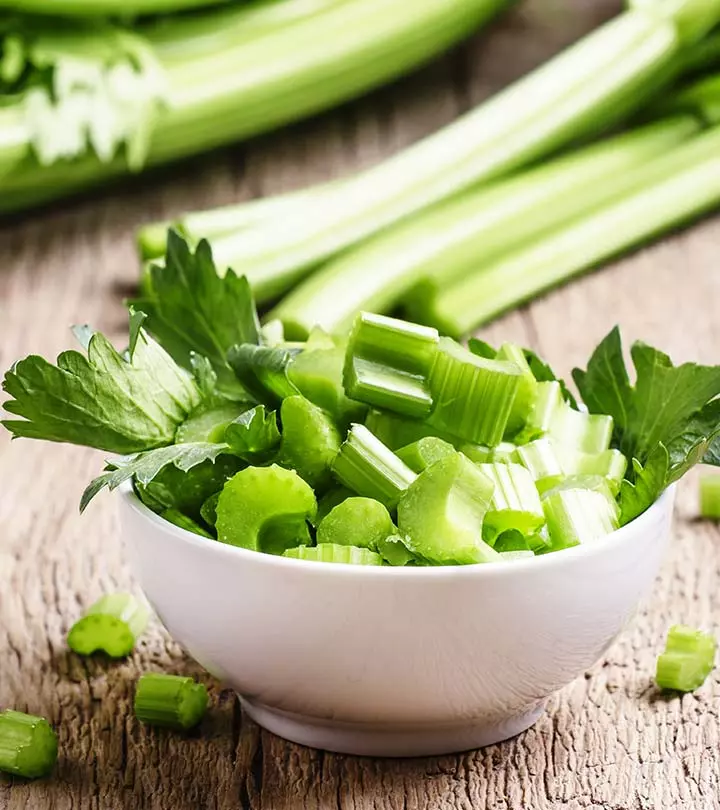
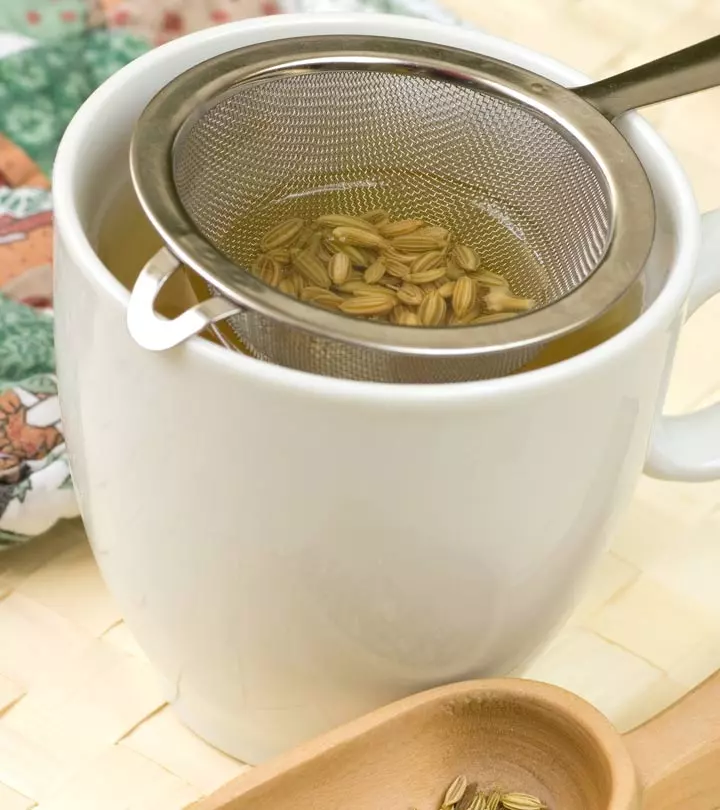
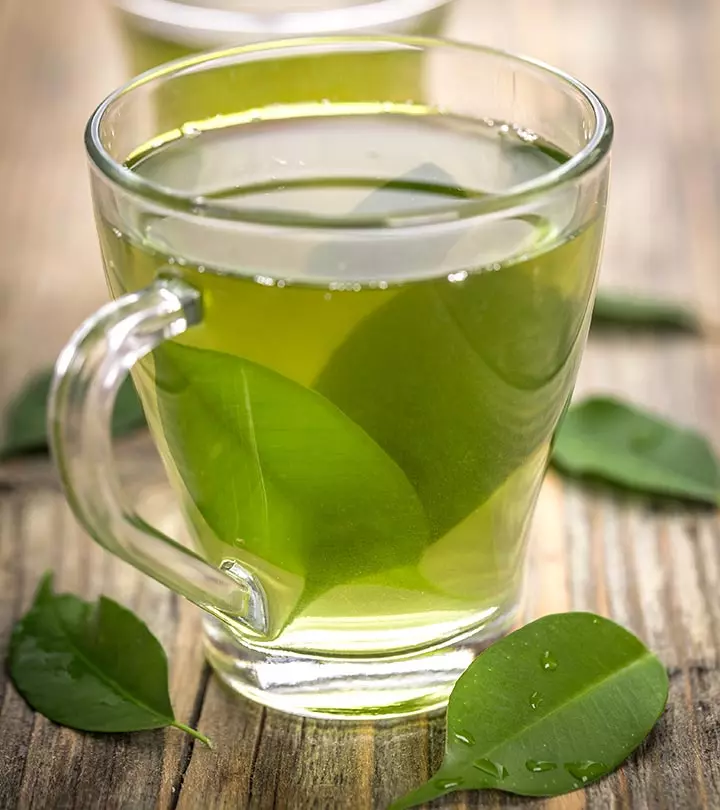
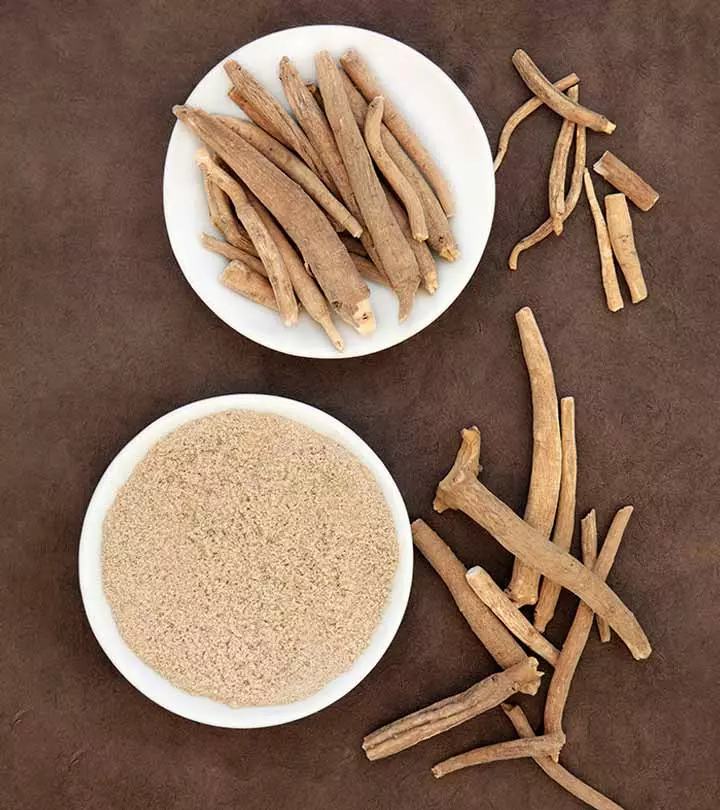
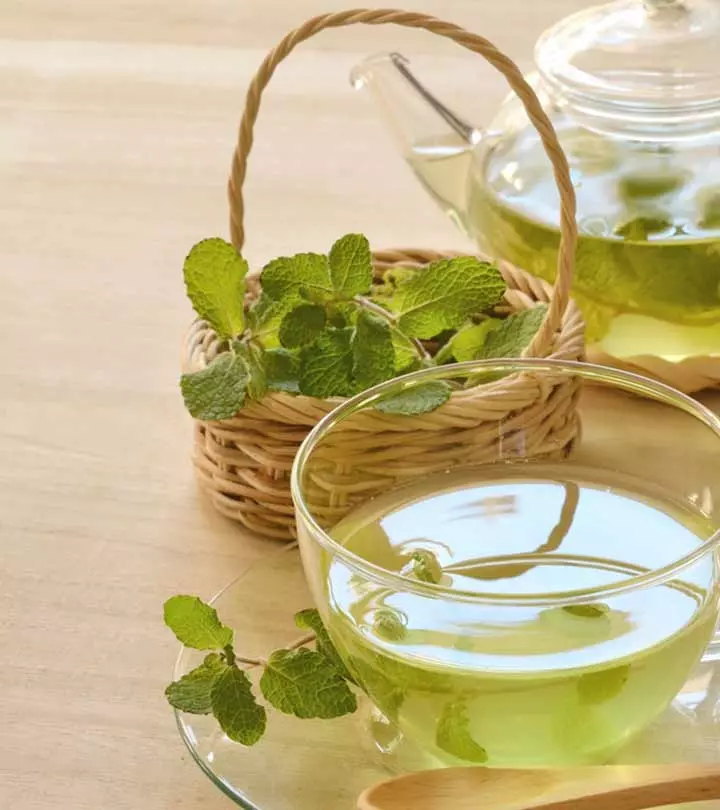





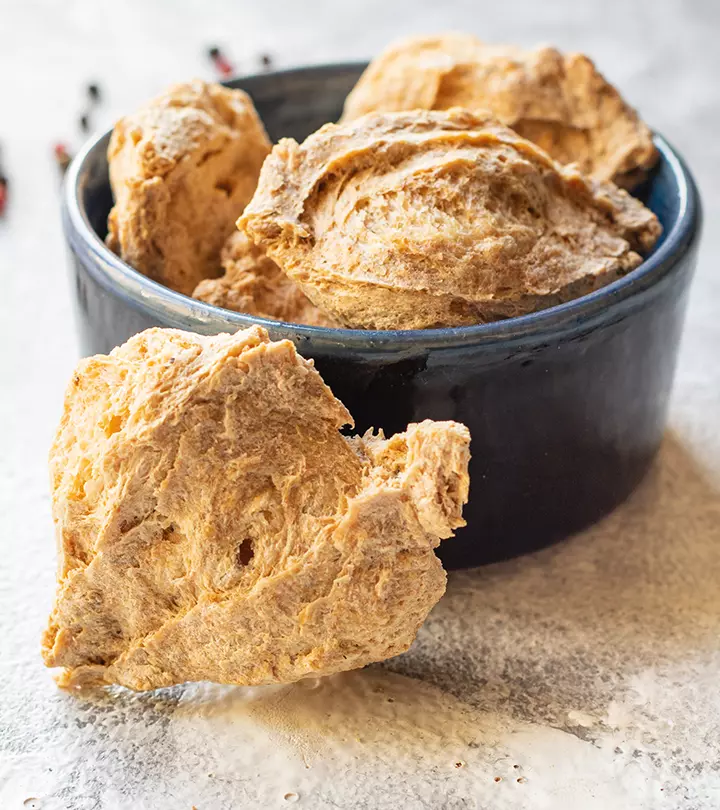


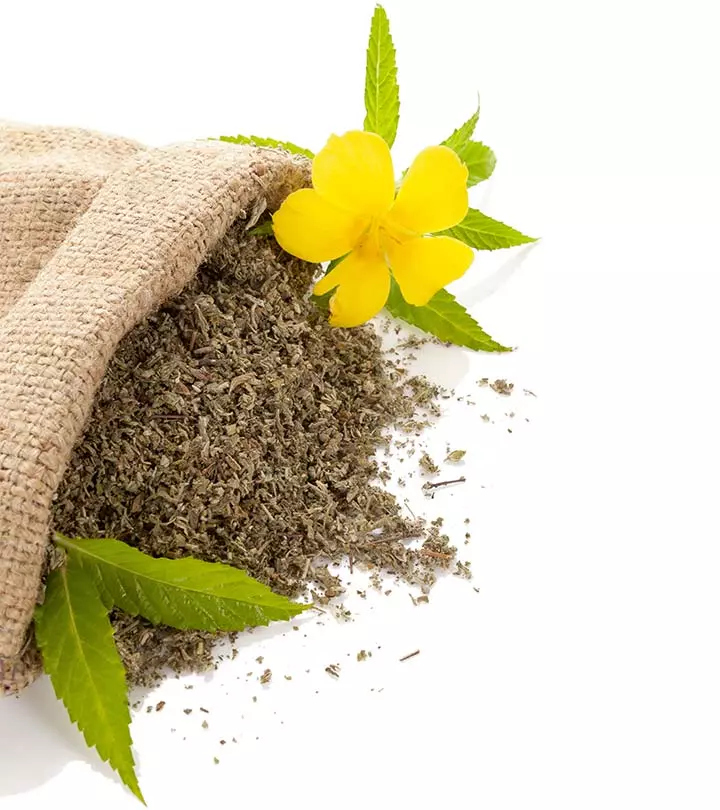


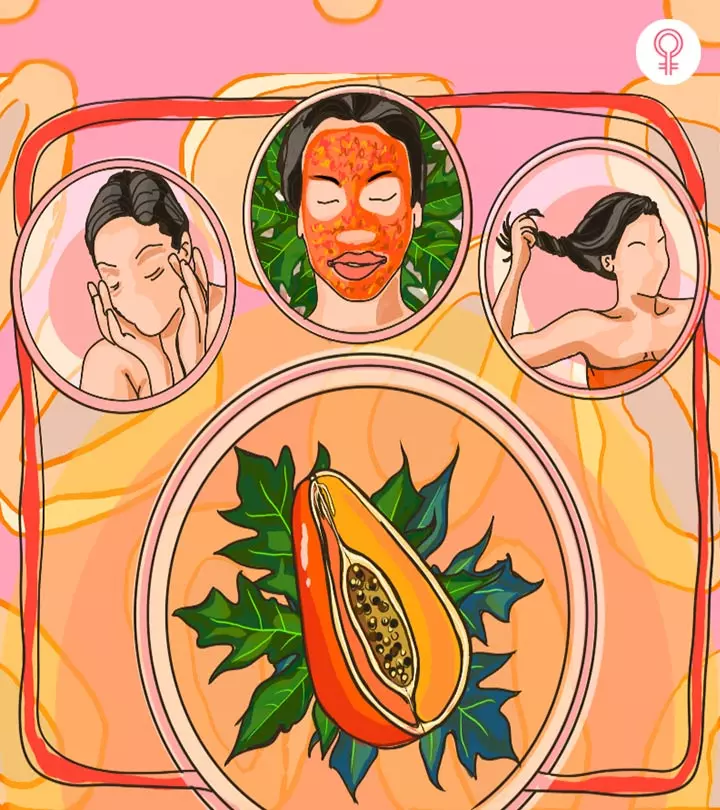
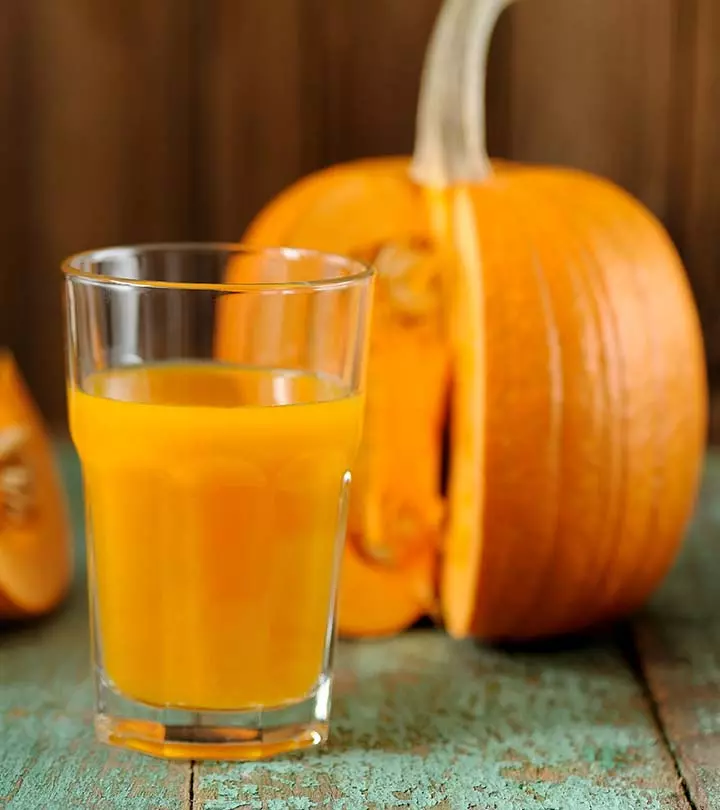



Community Experiences
Join the conversation and become a part of our empowering community! Share your stories, experiences, and insights to connect with other beauty, lifestyle, and health enthusiasts.